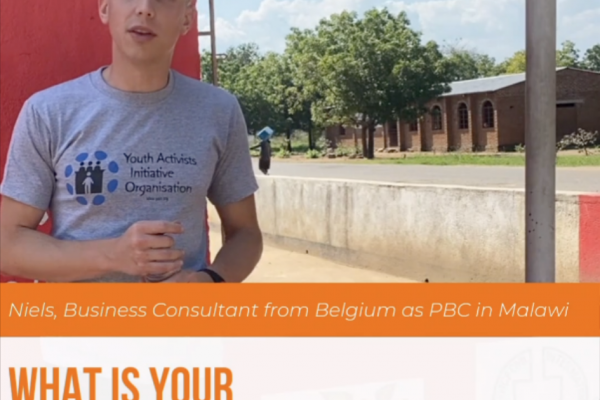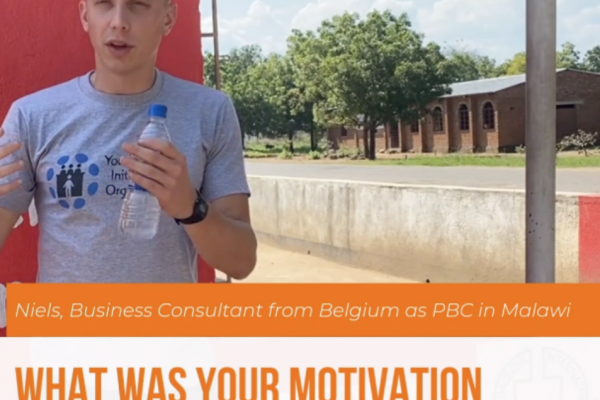Liz Hamburg is President and CEO of the US-based Taproot Foundation, which has organized the 3rd Global Pro Bono Summit in Berlin together with the BMW Foundation. Both foundations are pioneers of the pro bono movement and are actively driving it.
What is pro bono all about?
Pro bono is a Latin phrase that means for the public good. Unlike traditional volunteer work, pro bono service is a way for professionals to donate their expertise to a charity or NGO. So, for example, if you are a social media expert or know how to use financial spreadsheets or are an events planner, someone at an NGO would love for you to volunteer your services! Pro bono service gives NGOs a connection to talent and resources that they would otherwise not be able to access, so they can more effectively and efficiently address their missions to solve critical societal problems in fields such as health, environment or education.
Why are people looking for purpose outside their jobs?
As much as people get satisfaction from their work, we hear more and more often that professionals want to find a way to get meaning outside of their day-to-day jobs. Oftentimes, this comes from giving back to their communities and making a difference. The experience is eye-opening and even life-changing for some. We have many cases of a professional doing pro bono service for an organization and winding up on its Board of Directors.
How do they do this without getting burned out?
Pro bono service may not fit in your life at every phase and we fully understand that; people have to prioritize. However, people tend to make time for things that are important to them. Oftentimes, we actually hear that pro bono energizes them and reminds them of how fortunate they are. Pro bono is not a “one size fits all.” We have some volunteers who have volunteered over 1,000 hours of time! And we have some who will do a one-hour virtual coaching or a one-day event.
Among whom is pro bono most popular?
Pro bono is becoming more and more popular with Millennials who are looking to find purpose in their lives outside of work. But we also see a lot of moms who are looking to get back into the workforce and retirees looking to give back. Pro bono service is an excellent networking tool and it is a great way to build your CV. It is also a wonderful way to stretch your skills in a way your current job may not be able to. Think of a graphic designer who has been working for the same company with the same 3 brand colors for years. He can tap into his talent through pro bono service! Or the financial analyst who has been reviewing the same spreadsheets each quarter. Through pro bono she might help a nonprofit consider the benefits and risk of a new proposed earned income stream.
Where is the movement the strongest?
Today, I would say that it is still strongest in the United States, but the pro bono movement is definitely spreading across the globe! This week in Berlin, we have people from 23 countries joining us at the Global Pro Bono Summit to share their experiences. It is not least thanks to intermediaries such as Proboneo that the movement has recently gained momentum in Germany and in Berlin in particular.
Click on the button to load the content from storify.com.
![]()
The U.S. pro bono market, i.e. the business value of pro bono services, is estimated at 15 billion dollars.
The U.S. NGO sector is highly developed and serves a critical role in our society’s well-being. Volunteerism rates are very high by comparison. In addition, there is a long history of pro bono in the U.S. starting with the legal community. There is a strong ethic there that Taproot has been inspired by, and we have been working toward building that ethic outside the legal community for the last 14 years. I am so excited that other countries are joining this movement at such a fast pace! It feels like it is the beginning of our vision coming true to be able to share what Taproot has learned around the world.
What are the major differences between the U.S. and the German market?
To begin with, the term “pro bono” is much more wide-spread in the United States. The U.S. pro bono market is more researched and there is more data available in terms of the pro bono marketplace. AMAIDI, Proboneo, Startsocial and UPJ are among the successful pro bono intermediaries in Germany, but they have only started in recent years. A study conducted by the consulting firm OC&C estimated the German market size in 2013 at 520 million euros.
Is it already obligatory for American corporations to run a pro bono program as part of their CSR?
It is certainly not obligatory, but we believe that there are huge benefits to running a pro bono program. We are seeing that human resource departments are using pro bono to develop their “high potential leaders” and to recruit and engage their young professionals. Pro bono programs can enhance recruitment of new talent, and 70% of U.S. employees surveyed reported feeling better about working at their company as a result of their pro bono experience (“The Dollar Valuation for Pro Bono Service,” CECP and the Taproot Foundation, 2009).
The 3rd Global Pro Bono Summit in Berlin brings together pro bono intermediaries from countries including Saudi Arabia, Egypt, and South Korea. What do they have in common? What are the biggest differences?
We have more similarities than differences. What the participants share is a social entrepreneurial spirit to bring talented citizens to partner with community organizations. They are driven by the belief that citizens serving at the highest level of their professional expertise can have a tremendous impact on their country’s social issues. All while keeping in mind that there are, of course, differences across countries and cultures, different social and economic systems and different understandings of civil society engagement.
Interview: Maja Heinrich, BMW Foundation









Recent Comments